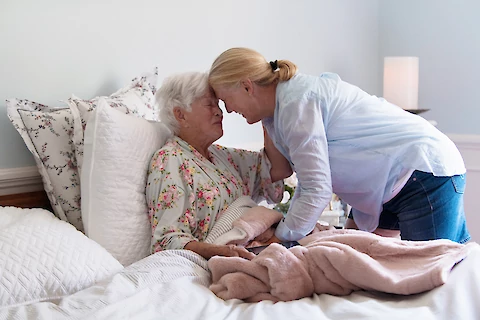
Have you had a difficult conversation with your parents about end-of-life planning? It's never too early to touch base with them and find out if they've gotten their affairs in order. Here's some advice for approaching the subject and encouraging your parents to put to paper their instructions for end-of-life care and financial decision-making.
What Is End Of Life Planning?
End-of-life planning is making arrangements for the time when you are no longer able to make decisions on your behalf, or independently care for yourself. It's about making sure that your wishes are known and respected, and that financial and legal decisions are addressed.
Four Reasons To Talk About End-Of-Life Planning With Your Elderly Parent
1. Ensuring Your Parent's Wishes Are Followed
End-of-life planning allows your parent to communicate their wishes for their care and their finances after they are no longer able to make decisions on their own. This includes deciding who will manage their finances and healthcare decisions on their behalf.
2. Addressing Finances And Legal Matters
End-of-life planning can help to ensure that your parent's finances and legal matters are taken care of by the people they choose. This includes making sure that their assets are distributed according to their instructions, and that their debts are addressed.
3. Preparing For Unexpected Events
Making arrangements for what will happen if something unexpected happens is an important part of end-of-life planning. This could include making plans for long-term care if your parent can't independently live in their own home, or for what should happen if your parent suddenly passes away.
4. Making Sure All Family Members Are On The Same Page
This conversation will ensure that everyone in the family is aware of your parent's wishes and understands the plans they've put in place. This can help reduce conflict and allow the family to better support one another.
Six Tips For Making The Conversation Go Smoothly
1. Consider Your Parent's Cultural Values
When discussing end-of-life planning with your parent, it is important to remember their personal beliefs and culture. Honor their personal values and make sure that you're respectful of their wishes.
2. Choose The Right Time
Pick a time when both of you are feeling calm and have enough time to fully discuss the topic. It's essential to approach this conversation with patience and understanding.
3. Express Your Concerns
Let your parent know why you're bringing up the conversation. Explain that you are concerned about their well-being and that you want to make sure their wishes are respected.
4. Listen To Your Parent's Perspective
Make sure that your parent has an opportunity to explain their wishes and feelings. Listen carefully and acknowledge and validate their point of view. Respect their decisions, even if you don't agree with them.
5. Ask Open-Ended Questions
Ask questions that can't be answered with a simple "yes" or "no." This will help to open up the conversation and ensure that your parent's wishes are heard.
6. Offer Resources
There are many resources available to help families and their elderly parents with end-of-life planning. If you feel overwhelmed or need additional help, it is important to reach out to a trusted expert. Your parents' primary care physicians can help with medical directives, and a family law professional can assist with estate planning and living wills.
Below are websites and forms that may assist in planning:
- Physician Orders for Life-Sustaining Treatment (POLST) (California edition. Your state may require its own form.)
- Sample advance directive form
- Power of Attorney facts from the American Bar Association
- Advance Directives vs Living Wills
Senior Helpers Cares
Talking about end-of-life planning with your elderly parent can be a difficult and emotional task, but it's a necessary step in looking after your senior loved ones. And caring for seniors is what we do best at Senior Helpers Southeastern Massachusetts, where we serve the Plymouth, Raynham, Dartmouth, Attleboro, and Bristol County areas. If you would like to learn more about our home care services, please contact us today.